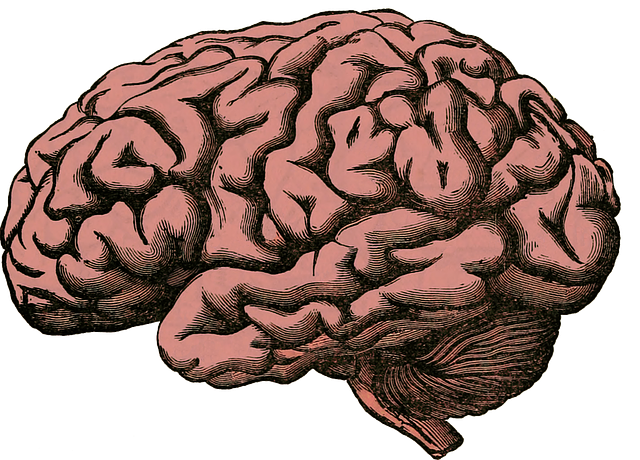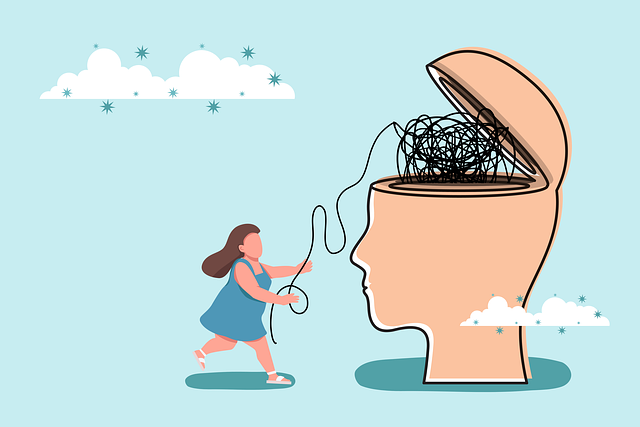Centennial Dialectical Behavioral Therapy (CDBT) is a revolutionary approach to mood regulation, empowering individuals to effectively manage anxiety and intense emotions. Through cognitive and behavioral techniques, CDBT teaches coping strategies, mindfulness, compassion, and emotional acceptance. By identifying triggers, challenging distorted thoughts, and adopting healthier response patterns, individuals gain confidence in self-regulation and reduce stigma. This therapy benefits both personal growth and professional resilience, offering a proven solution for navigating difficult emotions and preventing burnout among healthcare providers.
Mood regulation is a vital skill for navigating life’s challenges. This article explores effective strategies, centring on Centennial Dialectical Behavioral Therapy (CDBT), to help individuals gain control over their emotions. We delve into understanding emotional dysregulation, identifying triggers, and enhancing self-awareness through mindfulness. Additionally, we examine coping skills for stress management and building resilience, offering practical tools for navigating difficult emotions. Discover how CDBT can revolutionise your mental well-being.
- Understanding Mood Regulation: The Role of Centennial Dialectical Behavioral Therapy (CDBT)
- Identifying Triggers: Unraveling the Causes of Emotional Dysregulation
- Mindfulness and Emotion Awareness: CDBT Techniques for Better Self-Perception
- Coping Skills in Stress Management: Building Resilience with CDBT Principles
- Enhancing Flexibility: Navigating Difficult Emotions through CDBT Practice
Understanding Mood Regulation: The Role of Centennial Dialectical Behavioral Therapy (CDBT)

Understanding Mood Regulation: The Role of Centennial Dialectical Behavioral Therapy (CDBT)
Mood regulation is a vital aspect of mental well-being, enabling individuals to navigate life’s ups and downs with resilience. Centennial Dialectical Behavioral Therapy (CDBT) offers a comprehensive approach to achieving this balance. By combining cognitive and behavioral techniques, CDBT helps clients develop effective coping strategies for managing intense emotions, reducing distress, and fostering positive thinking. This therapy focuses on mindfulness, compassion cultivation practices, and learning to accept one’s feelings while staying grounded in reality.
CDBT is particularly beneficial for those struggling with anxiety relief and emotional regulation. It teaches individuals to challenge distorted thoughts, increase awareness of their emotional experiences, and develop healthier response patterns. Through structured skills training, clients gain tools to improve interpersonal effectiveness, stress management, and emotion regulation, ultimately leading to a more balanced and fulfilling life.
Identifying Triggers: Unraveling the Causes of Emotional Dysregulation

Identifying triggers is a crucial step in understanding and managing emotional dysregulation. Centennial Dialectical Behavioral Therapy (DBT) offers a structured approach to this process, helping individuals unravel the complex web of causes behind their mood swings and intense emotions. By keeping detailed logs and reflecting on patterns, one can begin to recognize what sets off their emotional responses—be it certain situations, interactions, or internal thoughts.
This awareness is empowering; it allows for proactive mood management. For instance, if a specific person or environment consistently triggers negative reactions, individuals can work on building healthier coping mechanisms or setting boundaries to reduce the impact of these triggers. Moreover, understanding personal triggers fosters confidence in self-regulation and contributes to mental illness stigma reduction efforts by shifting the focus towards personal growth and resilience rather than external factors alone.
Mindfulness and Emotion Awareness: CDBT Techniques for Better Self-Perception

Mindfulness and emotion awareness are core components of Centennial Dialectical Behavioral Therapy (CDBT), a powerful approach to emotional regulation. CDBT encourages individuals to develop a deeper understanding of their feelings, thoughts, and behaviors, fostering better self-perception. Through specific techniques, like focusing on the present moment and observing emotions without judgment, people learn to recognize triggers and patterns that influence their emotional responses. This increased awareness allows for more effective management of intense emotions and promotes healthier coping strategies.
Self-awareness exercises in CDBT play a crucial role in emotional healing processes. By engaging in these practices, individuals gain insights into their emotional reactions, enabling them to make meaningful changes in their lives. This therapeutic approach empowers people to navigate life’s challenges with greater equanimity, leading to improved mental well-being and overall quality of life.
Coping Skills in Stress Management: Building Resilience with CDBT Principles

Coping Skills in Stress Management play a pivotal role in building resilience, especially when integrated with the principles of Centennial Dialectical Behavioral Therapy (CDBT). CDBT offers a structured approach to help individuals navigate and manage intense emotions effectively. By combining cognitive restructuring techniques with behavioral activation, this therapy empowers people to challenge unhelpful thought patterns and engage in activities that foster positive moods.
In the context of Risk Management Planning for Mental Health Professionals, mental health education programs design should emphasize these coping skills. Teaching clients strategies to recognize early stress signs and implement CDBT principles can prevent burnout. Additionally, incorporating mindfulness exercises and distress tolerance techniques into Mental Health Education Programs Design enhances long-term well-being and resilience, ultimately contributing to a healthier work environment for professionals.
Enhancing Flexibility: Navigating Difficult Emotions through CDBT Practice

Navigating difficult emotions can be a challenging aspect of life, but Centennial Dialectical Behavioral Therapy (CDBT) offers a powerful approach to enhancing emotional flexibility. This therapy type teaches individuals effective skills to manage and understand their feelings, particularly in moments of distress. By practicing CDBT, one learns to accept their emotions without judgment, fostering a healthier relationship with one’s inner experiences.
The Community Outreach Program Implementation within CDBT provides a supportive environment where individuals can explore and process intense emotions. This is especially beneficial for healthcare providers who often face burnout prevention strategies through self-care practices. By integrating CDBT techniques, professionals can improve their ability to cope with stress and maintain emotional balance, thereby enhancing patient care and overall well-being.
Centennial Dialectical Behavioral Therapy (CDBT) offers a comprehensive framework for understanding and managing mood regulation. By combining techniques from mindfulness, coping skills, and emotional awareness, individuals can effectively navigate triggers, build resilience, and enhance their ability to flexibly respond to challenging emotions. This evidence-based approach empowers folks to take control of their mental well-being and lead more balanced lives.














